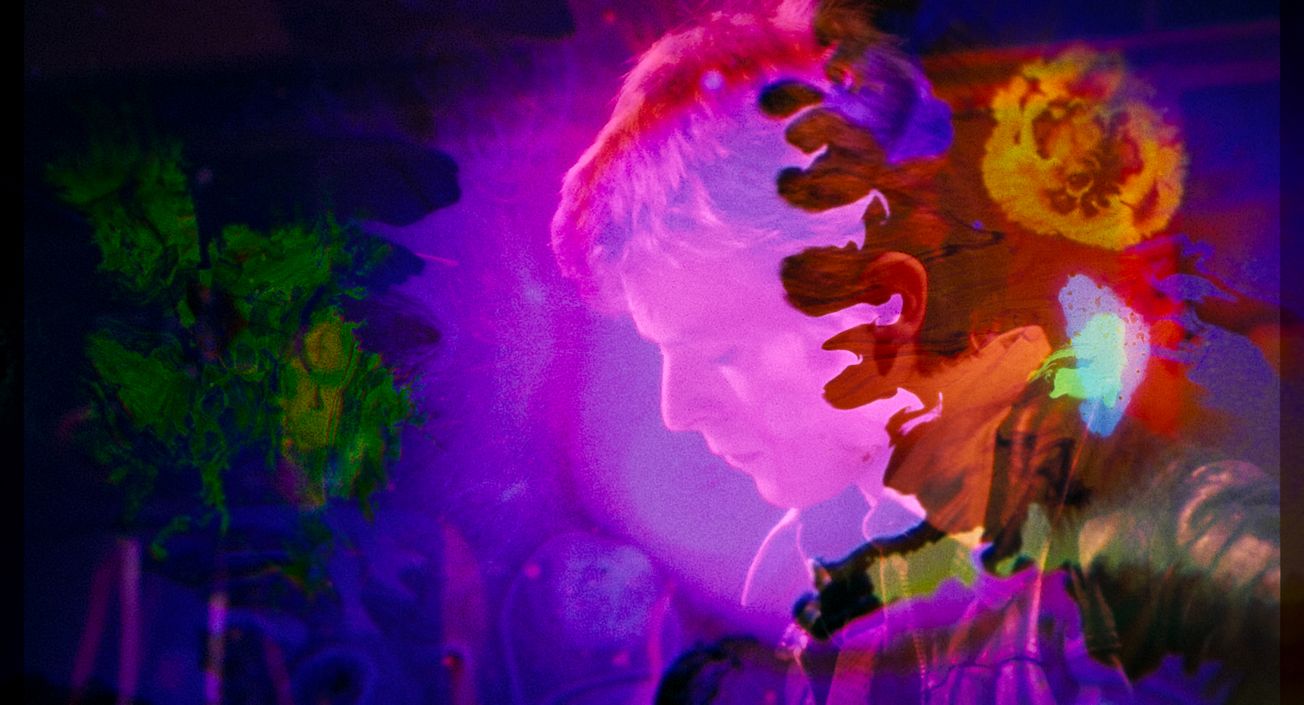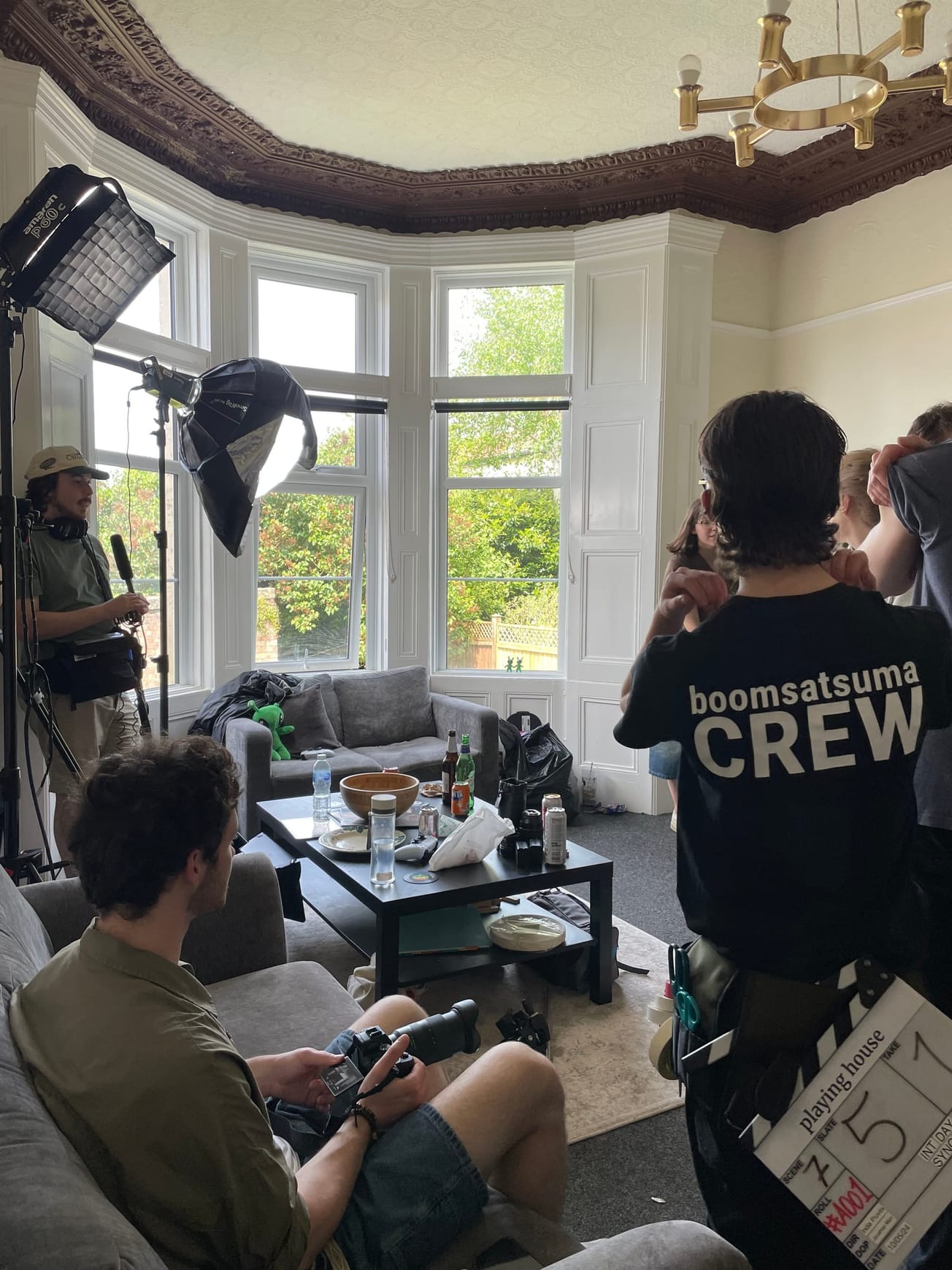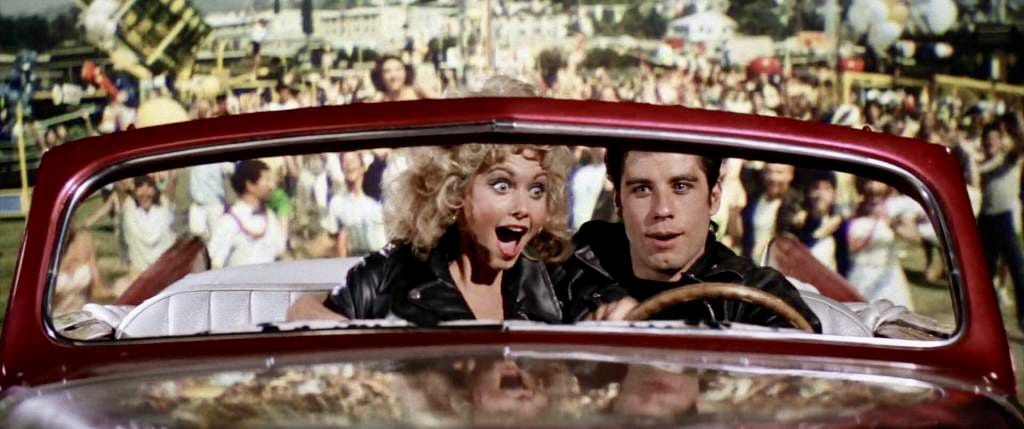by Arron Kennon, Second Year, English
From start to finish, Moonage Daydream, directed by Brett Morgen, displays an awareness that the elusive and labyrinthine existence of David Bowie could not possibly be captured in the standard documentary format. Morgen opts instead for a kaleidoscopic, audio-visual collage of Bowie’s music, films, paintings and philosophy, as if to say, ‘you want to understand Bowie, then experience his creations, that’s as close as you are going to get’.

Moonage Daydream is, more than anything, a work in experiencing Bowie rather than a narration of his life story. The concert footage we see enforces the idea that David Bowie transcended himself and his biography to become a constantly evolving cultural event. At all stages of his career we see hysterical fans waiting to see him, some looking like they are close to fainting as they reach out to try and touch him mid performance.
Clips from iconic films are edited into the footage, all of which Bowie references in his music or performance. These create the sense that Bowie was not just a musician, but also a sheer force of culture, capable of channelling the energy of the time and reproducing it uniquely into his music.

The documentary also pierces into the heart of his appeal: his constant need to recreate himself and push the boundaries of social norms as well as art. He appears on stage in dresses with a delectably camp demeanour, performing outrageously raunchy body movements.
The film impresses that this eccentricity comes partly from a desire to transgress, but mainly from an obsession with creating. Indeed, it is within these creations he says he feels most comfortable. Whether that be as 'Ziggy Stardust', the androgynous alien sent to Earth as its saviour; or the 'Thin White Duke', the cocaine-driven, hollow romantic; or any other of his multitude of alter egos.

Bowie’s philosophical musings are thread throughout the film and, unsurprisingly, they are as ‘hotch potch’ as his art. For instance, his nihilistic pondering on transience: ‘I’m dying. You’re dying. Second by second, all is transient. Does it matter?’, is replaced by the life affirming claim that as he gets nearer to death that he’d ‘love to do it all again’.
Morgen does not neglect Bowie’s biography entirely. We hear Bowie talk lovingly about his brother and how he inspired him to reject the mainstream. We hear how dissatisfied he became during the 80s, when he felt like he was making music people wanted to hear, rather than what he wanted to write - ‘I never wanted to be out here pleasing people’.

Biographical information is very limited beyond these moments, though. Where it does crop up, it acts more as a springboard from which Morgen releases a barrage of recordings of Bowie’s music and art. This is not a criticism of the film, quite the opposite, in fact, this approach works brilliantly. Through these rambunctiously creative techniques, Moonage Daydream excels in depicting a relentlessly deep thinker, a ferocious innovator and, of course, a dazzling musician.
Featured Image: IMDB
What is your favourite music documentary?









